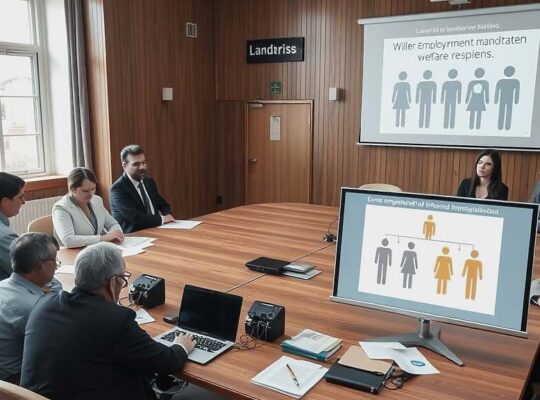A concerning trend is emerging in Germany’s social welfare system, indicating a significant decline in the long-term effectiveness of job placement programs for citizens receiving citizen’s income (Bürgergeld). A special evaluation by the Federal Employment Agency, obtained by AfD parliamentarian René Springer and reported by “Bild”, reveals that fewer than half of those integrated into the labor market are maintaining employment three months after placement.
The data indicates that only 47.9% of labor market integrations were deemed “need-covering” in 2024, meaning recipients sustained employment long enough to avoid reverting to citizen’s income or requiring supplementary assistance. This represents a noticeable downturn compared to 2021, when 51.6% of job placements resulted in recipients remaining independent of citizen’s income after three months.
The situation is particularly dire for individuals under the age of 25, with a dismal success rate of just 46.3%. Disparities also exist between German citizens and foreign nationals, with 51.4% of German citizens successfully maintaining employment after three months, compared to 44.7% of non-German citizens.
The findings are prompting calls for a fundamental review of practices within Job Centres – the agencies responsible for administering citizen’s income and employment support. René Springer has emphasized the urgent need to recalibrate Job Centre strategies, asserting they must prioritize sustainable and long-term integration into the labor market. The data raises questions about the efficacy of current training programs, the adequacy of support structures for vulnerable individuals and potentially, broader systemic challenges affecting the German labor market. Critics argue the statistics highlight a failure to adequately prepare individuals for the demands of sustained employment, potentially exacerbating long-term dependency on social welfare. Further investigation is likely to focus on identifying the root causes behind this alarming decline and implementing corrective measures to improve outcomes.












